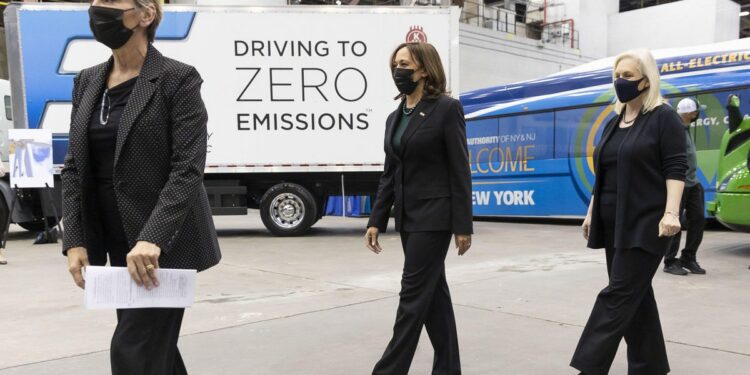I’ve been in and around the oil and gas business for 45 years now, since the summer of 1976 when I worked as a welder’s helper on a pipeline crew as a summer job between college semesters. Throughout that time, I’ve watched as politicians of both parties – some Republicans, but mainly Democrats – have done their best to use oil companies as a convenient boogeyman for political purposes.
From Jimmy Carter to Barack Obama to Joe Biden on his very first day in office, demonizing “Big Oil” has served as a tried and true political tactic down through the decades. Thus, it was with some healthy amusement that I read Tuesday’s remarks by Energy Secretary Jennifer Granholm before the National Petroleum Council, a federal advisory committee made up mainly of representatives from the industry, along with other key stakeholders.
Seeking I suppose to convey some reassurance to those present that the Biden Administration, despite its focused assault on the domestic industry since its first hours in office, is not the enemy, Granholm probably took things a bridge too far when she accused industry representatives of treating the administration as – guess what? – a “boogeyman.”
As quoted by Yahoo News, Granholm first said “I do not want to fight with any of you.”
But that was all the contrition she was willing to convey before moving right back into her standard passive-aggressive posture towards the industry. “We do see, though, some of the things that some of you are saying out there, or some of the organizations that are funded by some of you,” she said, referring to criticism she and the administration have received. “I do think it’s much more productive to work together on future-facing solutions … rather than making this administration a boogeyman.”
Granholm, mind you, is the Energy Secretary for the President who, on his very first day in office, cancelled TC Energy’s
TRP
$8 billion investment in the Keystone XL pipeline with the stroke of a pen. The next day, he suspended the federal leasing program for oil and gas activities. Granholm herself has spent much of her first year on the job engaged in blame-shifting exercises related to the growing problem of high gasoline prices, at one point blaming the domestic industry for not “flipping the switch” quickly enough to turn on new production, as if it were all that simple to do.
She is the same Energy Secretary who laughed out loud on a Friday when asked by a TV interviewer what steps the administration could take to try to slow rising gasoline prices, and then the very next week was out publicly detailing all the tools they supposedly have at their disposal, including Biden’s eventual order to release millions of barrels of oil from the Strategic Petroleum Reserve. She works for a President who, in the course of announcing that release, also directed the SEC to investigate oil marketers for phantom allegations of “price fixing,” a tired and much-used canard that has never turned up anything of substance. Her boss in the White House also continues to push a “Build Back Better” bill that is loaded up with new taxes and fees on the industry that many believe would inevitably lead to higher energy prices than consumers are already having to bear.
All of that, and so much more, but it is the industry that is somehow turning the administration into a boogeyman? That is a bold narrative right there.
In the midst of all of that, though, Granholm did deliver one bit of positive, sensible news to NPC members: She told them that this administration at least will not pursue a senseless renewal of the counterproductive ban on crude oil exports. That law, enacted in the 1975 by a Democratic-dominated congress and signed into law by then-President Gerald Ford, was repealed by a GOP congress and then-President Obama in 2015. The renewal idea has been pushed by Democratic congressional luminaries like Rep. Ro Khanna and Sen. Elizabeth Warren in recent weeks, drawing ridicule from analysts and pushback from the industry and others who know what an economic and supply-chain disaster such a move would create.
Obviously, some of that pushback had made its way to Granholm herself, who said “I heard you loud and clear and so has the White House. We wanted to put that rumor to rest.”
Good. Now, how about putting those endless efforts to portray Big Oil as a boogeyman to rest as well? If Granholm really want to work together with the industry on future-facing solutions, that would be a great first step.











